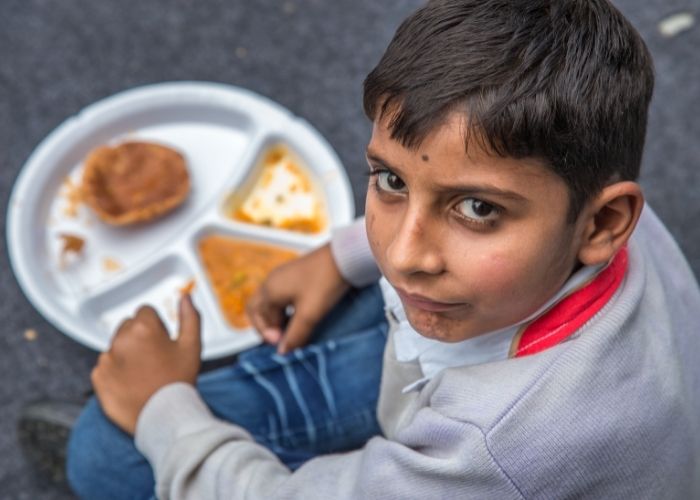MADRID – The risk for children in Spain to grow up in poverty is high. Of all EU Member States, this risk is only higher in Romania and Bulgaria. Currently, 31.3% of all Spanish children grow up in a family that lives below the poverty line.
Of this 31.3%, around 40% have at least one parent with an income from work. This is evident from recently published data from the international organisation for development cooperation Save The Children. The poverty line is set at an income that is 60% or less of the average income in Spain.
Child poverty has risen again since the pandemic
Save The Children’s research conducted in 14 European countries shows that none of these countries is free from child poverty. In Europe, 20 million children are currently growing up in poverty or social exclusion. After falling for some years, this number rose again in pandemic year 2020. Before the corona crisis, 18 million children grew up in poverty. According to Save The Children, this number will continue to increase from now on unless urgent action is taken.
According to the report released, the risk of poverty is greatest for children from single-parent families, large families, migrant families, families where one parent is incapacitated for work and children from families in rural areas. The NGO also finds alarming that millions of European children do not receive at least one healthy meal every day. And that children up to the age of 3 have little or no access to baby care and pre-school education. This is also often of poor quality.
Becas the comedor
Save The Children urges the Spanish government to pay more often the so-called becas comedor. These are allowances for low-income families for a hot meal at school. Currently, only 11% of children in Spain make use of this allowance. Meanwhile, the percentage of children growing up in poverty is much higher. Moreover, there is great geographical inequality in the payment of this allowance. In Murcia, only 2% of children are paid a beca comedor. Whereas in Melilla it is 18% and in Valencia and the Canary Islands it is 25%.
More likely to be obese
The report also shows that poverty in Spain is one of the risk factors for developing childhood obesity and overweight. Obesity is twice as common in families with an annual income of €18,000 or less as in families with an annual income of €30,000 or more.
Save The Children therefore considers it very important that an extra €100 million is included in the national budget of Spain for the becas de comedor. Meals at school should also be free for children up to 4 years of age from families with the lowest incomes (60% of the average income in Spain).
Housing shortage
The NGO also points out that Spain is one of the EU countries with the lowest percentage of social housing. This means that for a large part of all children living below the poverty line, the risk of eviction, becoming homeless and severe material depression is a daily reality. According to Save the Children, the Plan de Acción de Garantía Infantil of the Spanish government makes an important contribution to combating child poverty. In addition, the NGO believes, the tax system should also be adapted so that families living below the poverty line can benefit more from it.
Finally, according to the report, there should be more direct financial aid for children, as Spain is among the European countries with the lowest allowances for families with children. Save The Children also considers the Minimum Vital Income of great importance to prevent the chance of growing up in Spain in poverty.


